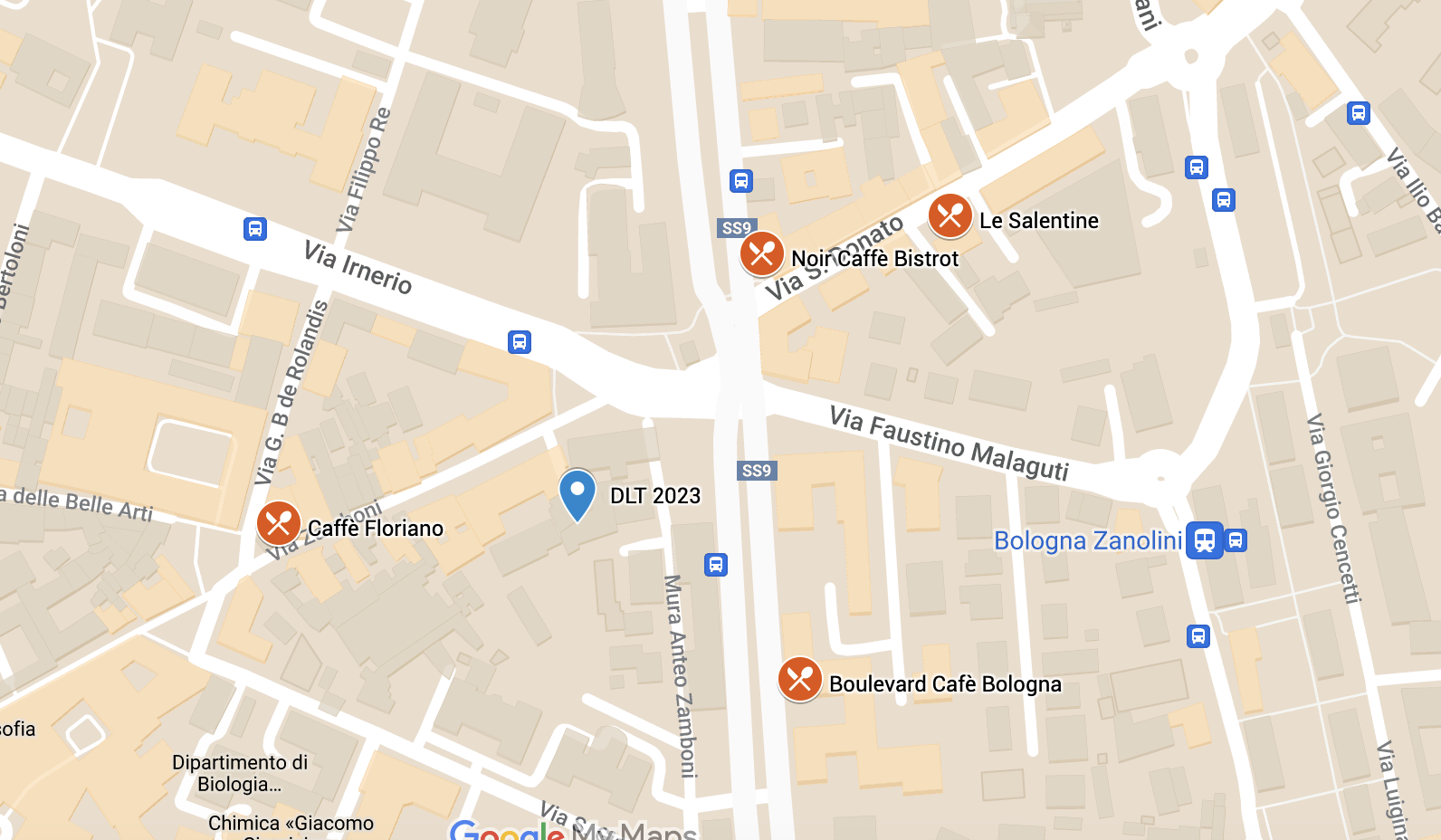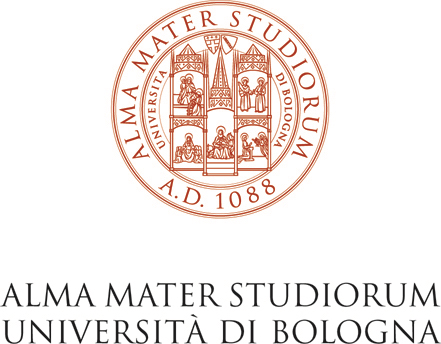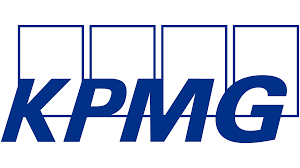Overview
Distributed Ledger Technology (DLT) is having an ever growing popularity. The first applications of DLT concern cryptocurrencies, but the DLT disruptive features enable several applications in many scenarios of interest both in research and business contexts. In particular, the possibility of executing Smart Contracts makes the DLT technology suitable to be adopted in a large number of application fields, being Internet of Things, Cyber Physical Systems, Edge Computing, and Supply Chain Management, only some examples. At the same time, the adoption of DLT opens new challenges in terms of privacy, security, scalability, sustainability and decentralization.
This workshop is a forum for researchers, developers, and users to discuss issues related to Distributed Ledger
Technology and its adoption in research and business scenarios. The primary goal is to foster discussion and
cross-fertilisation of ideas among experts in different fields related to DLTs, and thus advance the national
and international state-of-the-art. Research, applications, case studies, and experiences concerning DLT are all
encouraged with a special focus on the privacy and security issues.
The topics of interest of the workshop includes (but are not limited to):
- Blockchain foundations
- Consensus protocols
- Cryptography for blockchains
- Privacy and anonymity on blockchains and their applications
- Attacks to/through smart contracts
- Formal verification of blockchain protocols and smart contracts
- Scalability of blockchains and their applications
- Lightweight protocols based on blockchains
- Smart contracts and their applications
- Decentralized finance
- Transactions analysis
- Energy consumption issues
- Applications of blockchain technology
- Decentralization and governance in DLT
- Non-fungible tokens
- Oracles, bridges and interoperability of blockchains
- Game theory and blockchains
Contributions
The workshop accepts three kinds of contributions: 1) “regular
research papers”, 2) “short research papers” and “oral
communications”. Submissions of all kinds of contributions, if
accepted, entail an oral presentation at the workshop. As such, at least one author of
an accepted submission must attend the workshop in presence to give
the talk. Remote talks will not be possible.
Regular and short research papers must include original results (i.e.,
results not published yet and not concurrently under submissions
neither to a conference/workshop with proceedings, nor to a journal).
Research results in the form of position papers or SoKs are also
welcome. It is expected that regular and short research papers will be
evaluated by 3 reviewers. All accepted (both regular and short)
research papers will be included in the DLT 2023 proceedings published
on CEUR-WS. Rejected (both regular and short) research papers will be
then evaluated as oral communications unless the authors specify in the
submission right after the title that "the paper should not be
evaluated as an oral communication".
Regular research papers should have a minimum length of 10 pages and a
maximum length of 15 pages followed by bibliography and
an appendix. Reviewers are not required to read the appendix.
Additionally, there is a plan to invite extended full versions of
selected regular research papers for a special issue of a journal.
More details will be announced in the next version of this call for
papers.
Short research papers should have a minimum length of 4 and a maximum
length of 8 pages followed by a bibliography (no appendix
is allowed).
Submissions of oral communications are expected to be short with a
maximum of 2 pages and are not required to follow a specific format.
The review process of submitted oral communications will be lighter
and the notification will consist of just a short sentence motivating
acceptance or rejection. Since oral communications will not appear in
the proceedings, such submissions can also refer to already published
results.
Deadlines
Research paper submission: February 24, 2023 AoE March 5, 2023 AoE
Oral communication submission: March 31, 2023 AoE April 2, 2023
Acceptance Notification: April 7, 2023
Registration
Participation in the workshop is free and subject to compulsory registration: here.
Venue
Location
Aula G1 (main event), Istituto di Geologia e Paleontologia Raimondo Selli: via Zamboni 67, Bologna, Italy
Aula Ercolani E3 (meetings): via Mura Anteo Zamboni 2B, Bologna, Italy
Social Dinner
Ristorante Lambrusco, via Garavaglia 5, Bologna
Lunch
- Le Salentine: info
- Boulevard Cafè Bologna, Viale Quirico Filopanti, 4h
- Noir Caffè Bistrot, Viale Carlo Berti Pichat, 32d
- Caffè Floriano, Via Zamboni, 70a
- There are many others 10 minutes away by foot in in via Zamboni or via Irnerio

Hotel
- Hotel University: info
- Hotel Accademia: info
- Hotel San Giorgio: info
- Hotel Pedrini: info
- Aemilia Hotel: info
Program
DAY 1: Thursday 25th
| 9:00-9:10 | Opening session | ||
| 9:10-11:00 | Session 1 | ||
| 9:10-9:22 | Exploiting Ethereum after "The Merge": The Interplay between PoS and MEV Strategies (oral communication) - Davide Mancino, Alberto Leporati, Marco Viviani and Giovanni Denaro | ||
| 9:22-9:34 | Towards a quantum-safe transaction signature in Ethereum (oral communication) - Stefano Bistarelli, Marco Fiore, Ivan Mercanti and Marina Mongiello | ||
| 9:34-9:46 | Analysis of the Confirmation Time in Proof-of-Work Blockchains (oral communication) - Ivan Malakhov, Andrea Marin, Daria Smuseva and Sabina Rossi | ||
| 9:46-10:04 | Certified Byzantine Consensus with Confidential Quorum for a Bitcoin-derived Permissioned DLT - Marco Benedetti, Francesco De Sclavis, Marco Favorito, Giuseppe Galano, Sara Giammusso, Antonio Muci and Matteo Nardelli | ||
| 10:04-10:16 | Smart contracts in a bare-bone UTXO model (oral communication) - Massimo Bartoletti, Riccardo Marchesin and Roberto Zunino | ||
| 10:16-10:34 | Studying the Compounding Effect: The Role of Proof-of-Stake Parameters on Wealth Distribution - Alberto Leporati | ||
| 10:34-10:46 | A theoretical basis for Blockchain Extractable Value (oral communication) - Massimo Bartoletti and Roberto Zunino. | ||
| 11:00-11:20 | Coffee break | ||
| 11:20-13:10 | Session 2 | ||
| 11:20-11:32 | A dataset trading system based on DLT and IPFS (oral communication) - Marco Di Francesco, Lodovica Marchesi, Michele Marchesi and Raffaele Porcu | ||
| 11:32-11:50 | Not Enough IoT After All: Visiting Transactional Characteristics of IoT Blockchains - Abhimanyu Rawat, Vanesa Daza and Matteo Signorini | ||
| 11:50-12:02 | On the Synchronization Power of Token Smart Contracts (oral communication) - Giorgia Azzurra Marson | ||
| 12:02-12:20 | Orchestration of Blockchain-based Digital Twins - Marco Benedetti, Marco Favorito and Matteo Nardelli | ||
| 12:20-12:32 | PUF-Based Identification Tags and Blockchain for Supply Chain Management (oral communication) - Carmelo Felicetti, Antonella Guzzo, Antonino Rullo, Domenico Saccà and Francesco Pasqua | ||
| 12:32-12:50 | A Decentralized Data Sharing Framework based on a Key-Redistribution method - Fadi Barbara, Mirko Zichichi, Stefano Ferretti and Claudio Schifanella | ||
| 12:50-13:02 | From Bitcoin to Stablecoin. The monetary development of crypto assets (oral communication) - Emilia Richiello | ||
| 13:10-14:30 | Lunch | ||
| 14:30-16:20 | Session 3 | ||
| 14:30-14:42 | Equilibria in DeFi from State Context Inspection (oral communication) - James Hsin-Yu Chiang, Conor McMenamin and Margherita Renieri | ||
| 14:42-15:00 | Incentivizing Customer Reviews in the Grocery Industry: The Re-Taled Project’s Approach - Tania Bruno, Ettore Etenzi, Luca Gualandi, Eraldo Katra, Rosario Pugliese, Alessio Taranto and Francesco Tiezzi | ||
| 15:00-15:12 | Scalability in E-voting Systems using the Solana Blockchain (oral communication) - Mohammad Hajian Berenjestanaki, Hamid Reza Barzegar, Nabil El Ioini and Claus Pahl | ||
| 15:12-15:30 | Enforcing Confidentiality in Tornado Cash-based E-voting Systems - Stefano Bistarelli, Ivan Mercanti and Francesco Santini | ||
| 15:30-15:42 | Blockchain in Public Governance: New Possibilities and Challenges for Public Data Management and e-Voting (oral communication) - Ali Mert Gürkan | ||
| 15:42-16:00 | The Referendum Problem in Anonymous Voting for Decentralized Autonomous Organizations - Vincenzo Iovino, Artem Grigor and Giuseppe Visconti | ||
| 16:00-16:12 | A Traffic-Analysis Proof Solution to Allow K-Anonymous Payments in Pseudonymous Blockchains (oral communication) - Francesco Buccafurri, Vincenzo De Angelis and Sara Lazzaro | ||
| 16:20-16:40 | Coffee break | ||
| 16:40-18:20 | Session 4 | ||
| 16:40-16:52 | Clearing Fuzzy Signatures: a Proof of Work Blockchain Protocol for Biometric Identification (oral communication) - Paolo Santini, Giulia Rafaiani, Massimo Battaglioni, Marco Baldi and Franco Chiaraluce | ||
| 16:52-17:10 | An AMM minimizing user-level extractable value and loss-versus-rebalancing - Conor McMenamin and Vanesa Daza | ||
| 17:10-17:22 | From Paper to Blockchain: A Proof of Concept for Storing Aviation Mainentance Documents (oral communication) - Nader Mohamed and Francesco Bruschi | ||
| 17:22-17:40 | Modeling Carne PRI supply chain with the *-Chain Platform - Stefano Bistarelli, Francesco Faloci, Paolo Mori, Carlo Taticchi and Marino Miculan | ||
| 17:40-17:52 | Sharpening Ponzi Schemes Detection on Ethereum with Machine Learning (oral communication) - Letterio Galletta and Fabio Pinelli | ||
| 17:52-18:04 | ChorSSI: A Model-Driven Framework for Self-Sovereign Identity on Blockchain (oral communication) - Tommaso Cippitelli, Alessandro Marcelletti and Andrea Morichetta | ||
| 18:04-18:16 | Towards a Privacy-Preserving Dispute Resolution Protocol on Ethereum (oral communication) - Andrea Gangemi | ||
| 18:30-19:00 | DLT group meeting (Aula Ercolani E2: via Mura Anteo Zamboni 2B) |
DAY 2: Friday 26th
All accepted research papers are available at http://ceur-ws.org/Vol-3460.
Organization
Program Co-Chairs
- Paolo Mori,
Istituto di Informatica e Telematica del CNR - Ivan Visconti,
Università degli Studi di di Salerno
Workshop Co-Chairs
- Cosimo Laneve,
Università degli Studi di Bologna - Giovanni Sartor,
Università degli Studi di Bologna
Sponsorships chair
- Monica Palmirani,
Università degli Studi di Bologna
Organizing Commitee
- Alessandro Parenti,
Università degli Studi di Bologna - Adele Veschetti,
TU Darmstadt
Web chair
- Ivan Mercanti,
Università degli Studi di Perugia
Steering Commitee
- Leonardo Aniello,
University of Southampton - Massimo Bartoletti,
Università degli Studi di Cagliari - Stefano Bistarelli,
Università degli Studi Perugia - Maurizio Pizzonia,
Università degli Studi Roma Tre - Andrea Vitaletti,
Università degli Studi di Roma "La Sapienza"
Technical Program Committee
- Leonardo Aniello,
University of Southampton - Massimo Bartoletti,
Università degli Studi di Cagliari - Marco Benedetti,
Banca d'Italia - Stefano Bistarelli,
Università degli Studi Perugia - Andrea Bracciali,
University of Stirling - Francesco Bruschi,
Politecnico di Milano
- Francesco Buccafurri,
Mediterranea University of Reggio Calabria - Matteo Campanelli,
Protocol Labs - Marco Baldi,
Università Politecnica delle Marche - Michele Ciampi,
University of Edinburgh - Mauro Conti,
Università degli Studi di Padova - Vanesa Daza,
UPF Barcelona - Angelo De Caro,
IBM Zurich - Stefano Ferretti,
Università degli Studi di Urbino - Danilo Francati,
Aarhus University / Concordium - Pierluigi Gallo,
Università degli Studi di di Palermo - Juan Garay,
Texas A&M University - Cosimo Laneve,
Università degli Studi di Bologna - Alberto Leporati,
Università degli Studi di Milan-Bicocca - Bernardo Magri,
Manchester University - Giorgia Azzurra Marson,
NEC Labs - Marino Miculan,
Università degli Studi di Udine - Leonardo Mostarda,
Università degli Studi di Camerino - Remo Pareschi,
Università degli Studi del Molise - Maurizio Pizzonia,
Università degli Studi Roma Tre - Laura Ricci,
Università degli studi di Pisa - Domenico Sacca,
Università degli Studi della Calabria - Antonio Sanso,
Ethereum Foundation - Alessandra Scafuro,
NCSU - Claudio Schifanella,
Università degli Studi di Torino - Luisa Siniscalchi,
Technical University of Denmark - Francesco Tiezzi,
Università degli Studi di Firenze - Sara Tucci-Piergiovanni,
Paris-Saclay University - Andrea Visconti,
Università degli Studi di Milano - Andrea Vitaletti,
Università degli Studi di Roma "La Sapienza" - Vassilis Zikas,
Purdue University - Roberto Zunino,
Università degli Studi di Trento
Sponsorships

